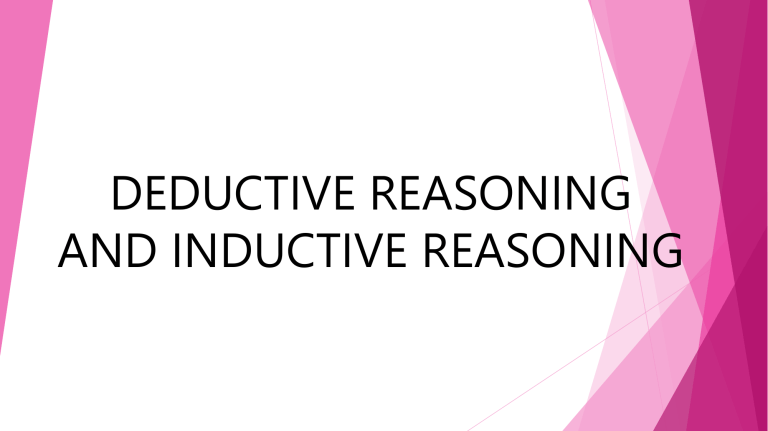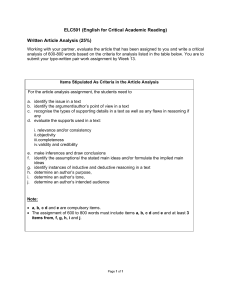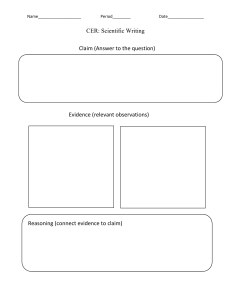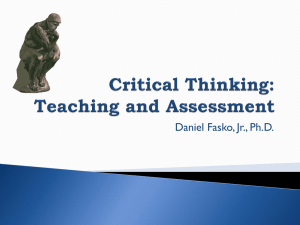
DEDUCTIVE REASONING AND INDUCTIVE REASONING DEDUCTIVE REASONING is a procedure in which conclusions are logically formed from given information. It works from general to specific and considered as the most valid form of proof. DEDUCTIVE REASONING- Deductive Reasoning is composed of two statements called PREMISES and produces a deduction called CONCLUSION. TWO LAWS OF DEDUCTIVE REASONING: LAW OF DETACHMENT : If p is true then q is true, p q is true statement. LAW OF SYLLOGISM: If p q and q r are true statements then p r is a true statement. EXAMPLE: LAW OF DETACHMENT PREMISES: All 9 students are taking geometry. James is a grade 9 student. CONCLUSION: James is taking Geometry. Example: LAW OF SYLLOGISM OR TRANSITIVITY PREMISES: If you are a grade 9 student, then you are taking Geometry. If you are taking Geometry, then you will be good in reasoning. CONCLUSION : If you are a grade 9 student, then you will be good in reasoning. Decide whether the argument is VALID OR INVALID. Kath is in the canteen or in the library. Kath is not in the canteen. Therefore, Kath is in the library. VALID Some math club officers are boys. Justine is a Math Club officer. Therefore, Justine is a boy. invalid Solution: though it is true that Justine is a math club officer but justine could be a girl. All math club officers are boys. Justine is a Math club officer. Therefore, Justine is a boy. VALID Solution: Since all math club officers are boys and math club officer, it follows that Justine is a boy. If an animal is a bird, then it has wings. If an animal has wings, then it can fly. Therefore, if an animal is a bird, then it can fly. inVALID Decide whether the argument is VALID OR INVALID. 1. All birds can fly. An ostrich is a bird. Therefore, an ostrich can fly. 2. If 3x = 15, then x = 5 x ≠ 5. Therefore, 3x ≠ 15 3. If a student violates a school policy, then he or she will be sent to guidance office. If a student will be sent to guidance office, then his or her parents will be called. Therefore, If a student violates a school policy, then his or her parents will be called. INDUCTIVE REASONING INDUCTIVE REASONING is a procedure where data are observed, patterns are recognized and conclusions are based on the observations made. The generalization used in inductive reasoning is called conjecture. • Most scientific and mathematical inquiry begins with inductive reasoning. Solving patterns whether visual pattern or number pattern and finding a general rule is part of inductive reasoning.


